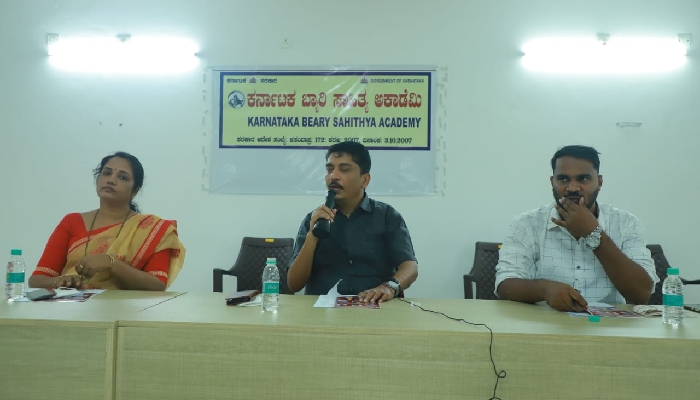New Delhi, Feb 28: Historian Audrey Truschke refuses to buy the argument that Aurangzeb razed temples because he hated Hindus saying it has roots in colonial-era scholarship, where positing timeless Hindu-Muslim animosity embodied the British strategy of divide and conquer.
 In her new book, she also says that had Aurangzeb’s reign been 20 years shorter, he would have been judged differently by modern historians. Truschke, an assistant professor of South Asian history at Rutgers University in Newark and an avid follower of Mughal history, New Jersey, has now come up with a new biography on Aurangzeb.
In her new book, she also says that had Aurangzeb’s reign been 20 years shorter, he would have been judged differently by modern historians. Truschke, an assistant professor of South Asian history at Rutgers University in Newark and an avid follower of Mughal history, New Jersey, has now come up with a new biography on Aurangzeb.
"Aurangzeb: The Man and The Myth", published by Penguin Random House, takes a fresh look at the controversial Mughal emperor. According to Truschke, Hindu and Jain temples dotting the landscape of Aurangzeb's kingdom were entitled to Mughal state protection, and he generally endeavoured to ensure their well-being.
"By the same token, from a Mughal perspective, that goodwill could be revoked when specific temples or their associates acted against imperial interests. Accordingly, Emperor Aurangzeb authorised targeted temple destructions and desecrations throughout his rule," she claims.
"Many modern people view Aurangzeb's orders to harm specific temples as symptomatic of a larger vendetta against Hindus. Such views have roots in colonial-era scholarship, where positing timeless Hindu-Muslim animosity embodied the British strategy of divide and conquer," she writes.
She says there are, however, numerous gaping holes in the proposition that Aurangzeb razed temples because he hated Hindus.
"Most glaringly, Aurangzeb counted thousands of Hindu temples within his domains and yet destroyed, at most, a few dozen. This incongruity makes little sense if we cling to a vision of Aurangzeb as a cartoon bigot driven by a single-minded agenda of ridding India of Hindu places of worship.
"A historically legitimate view of Aurangzeb must explain why he protected Hindu temples more often than he demolished them." Truschke argues that Aurangzeb followed Islamic law in granting protection to non-Muslim religious leaders and institutions.
"Indo-Muslim rulers had counted Hindus as dhimmis, a protected class under Islamic law, since the eighth century, and Hindus were thus entitled to certain rights and state defences.
"Yet, Aurangzeb went beyond the requirements of Islamic law in his conduct towards Hindu and Jain religious communities. Instead, for Aurangzeb, protecting and, at times, razing temples served the cause of ensuring justice for all throughout the Mughal Empire."
Truschke claims state interests constrained religious freedom in Mughal India, and Aurangzeb did not hesitate to strike hard against religious institutions and leaders that he deemed seditious or immoral.
"But in the absence of such concerns, Aurangzeb's vision of himself as an even-handed ruler of all Indians prompted him to extend state security to temples."
She says Aurangzeb had 49 years to make good on his princely promise of cultivating religious tolerance in the Mughal Empire, and he got off to a strong start.
"In one of his early acts as emperor, Aurangzeb issued an imperial order (farman) to local Mughal officials at Benares that directed them to halt any interference in the affairs of local temples."
Truschke claims that political events incited Aurangzeb to initiate assaults on certain Hindu temples. She also argues that if Aurangzeb's reign had been 20 years shorter, closer to that of Jahangir (who ruled for 22 years) or Shah Jahan (who ruled for 30 years), modern historians would judge him rather differently.
"But Aurangzeb's later decades of fettering his sons, depending on an increasingly bloated administration, and undertaking ill-advised warring are a hefty part of his tangled legacy. Thus, we are left with a mixed assessment of a complex man and monarch who was plagued by an unbridgeable gap between his lofty ambitions and the realities of Mughal India," she writes.








Comments
#4,AHMED K.C. - HINDUISM THRIVED FROM AFGANISTHAN TO BURMA,
Its the effect of Muslim rulers today Afganisthan, Pakistan, Bangladesh, have 100% muslim population. And how rest of India hinduism survived was becoz of Rulers like Pritviraj Chauhan, Maharana pratap, Chatrapati Shivaji maharaj, and so on.
Muslims ruled India for 700 years. If there was atrocities against Hindus and forced conversion there would not have been only 24% Muslims at the time of Independence in the year 1947. Even today Muslims are only 15% according to statistics.
If Muslims rulers were really bad, then Muslims population in India would have been 80% and all other would have been 20%
Undermine muslims is the prime and main agenda of BJP which is agreed by being followed by them including name sake indians Mukhtar Abbas and Shanawaz are following. BJP and Trump are two faces of a coin.
Aurangzeb (Allah have mercy on him) spread justice across \Akhand \" Bharath (which was from Afghan to South of India).
A devout Muslim is always the one who rules over his people with fear of Allah & justice, and he is always hated by a bigoted section.
Beats Shivaji all around Maharashtra, British couldn't establish anything during his reign, Poor enjoyed power, Farmers were given highest preference in his administration, Criminals feared the shariah law.
No rapes, or threats, or lynching, That's why Sanghis hate him!
May Allah forgive his faults, shower his mercy on him...!"
BJP came to power just to undermine Muslims....that is it....no development (vikas).....problem creators....
Add new comment